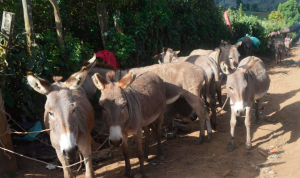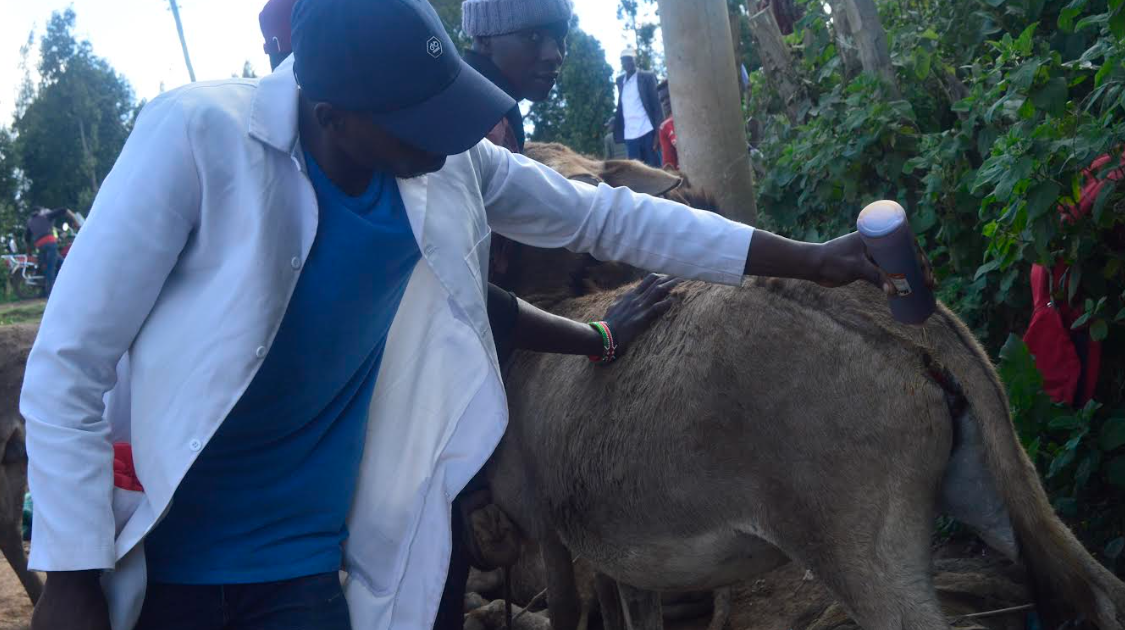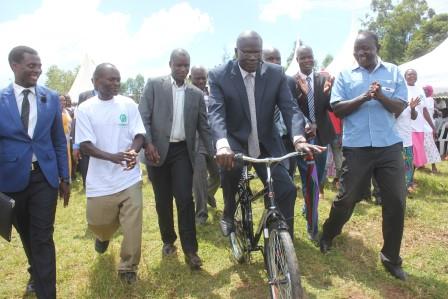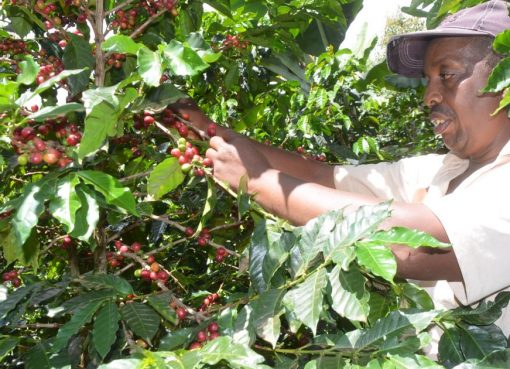There is a need to protect donkeys from feared extinction, following experts’ reports that the population of the beast of burden has been gradually decreasing.
In a report compiled by the Kenya Agricultural and Livestock Research Organisation (KALRO), the general perception on the donkey population is that it has reduced considerably, and the situation is expected to worsen if nothing is done to protect the animals.
The decrease in population was attributed to the sale of donkeys for slaughter and rampant donkey theft.
The report also showed that donkeys have a slow rate of reproduction attributed to a long gestation period of 12 months and low chances of conception in working donkeys subjected to intense work, a free-ranging management system, and long periods of nursing calves.

The donkey population is also threatened by death as a result of diseases like tetanus, diarrhoea, and accidents.
The report carried out in 2022 showed there has been a reduction in donkey users by an estimated 50% after loss of their donkeys and inability to raise capital to purchase replacement stock.
Increased global demand for donkey meat and skin led to the establishment and licensing of donkey slaughterhouses in 2016, but later, the slaughterhouses were shut down in 2020 following an increased rate of donkey theft.
The slaughter houses licensed to slaughter donkeys were: Goldox Kenya Limited in Mogotio, Star Brilliant in Naivasha, Silzah Limited in Lowdar, and Fuhai Limited in Machakos.
Following the distressing report, KNA sought an audience with Farming System Kenya (FSK), an organisation that deals with animal protection, to find their relevance in protecting the beast of burden from extinction.
Samuel Chege, the FSK programme officer, noted that if the slaughterhouses were not shut down, the population of donkeys would have reduced from 1.9 million in 2016 to less than 500, 000 donkeys in 2022.
Nevertheless, he raised concern over the rampant slaughter of donkeys in bushes that threatens the survival of the beast of burden.
“We have evidence of the donkeys being slaughtered in bushes at the Ewaso Kedong area in Kajiado County. This is despite the ban on slaughtering donkeys by the government,” he said.
The programme officer observed that because of the reduction in population, the prices of donkeys have gone high but pointed out that many farmers were not willing to sell their animals because of their relevance.
“The donkey farmers have instead been fighting hard to protect their animals by enhancing the security of their animals through the construction of lockable sheds where the animals spend their nights,” he said.
He estimated a donkey to bring an income of Sh. 1000 to Sh. 1500 on a daily basis, hence reiterating that the animal is a great source of income in the low-income earning families.
The domestic animal, he said, is highly placed among other domestic animals as they are friendly and faithful to the owners.
“In fact, many women refer to it as a co-wife, as it assists them to fetch water, ferry farm produce, provide income, and as a means of transport,” he said, citing that in some regions, its milk is regarded as very nutritious and is given to children and the sick.
However, he said that due to the high demand of donkey skin and meat in foreign countries like China, the population of the beast of burden has been dwindling, raising a concern among the stakeholders about the likelihood of extinction of the animal.
“Donkey skin is used to make traditional medicine, ejiao. Ejiao is made using gelatin extracted from boiled donkey hides. It is alleged that the medicine supplements lost blood, delays ageing, increases libido, treats side effects of chemotherapy, and prevents infertility, miscarriage, and menstrual irregularity,” said Chege.
Chege lamented that the population of donkeys in the county has been slowly dwindling as many farmers report their animals disappearing mysteriously and never to be traced again.
Dr. Yegon Kibet of FSK asked for collective protection of donkeys, asking members of the public to raise an alarm when they find a herd of donkeys being transported.
He reiterated that bush slaughter is dangerous as it exposes the residents to zoonotic diseases like anthrax and lobbies.
Dr. Kibet also asked farmers with sick donkeys to report to their organisation so that their animals can be treated at a subsidised fee.
“We offer regular sensitisation forums to our farmers to impact on their skills on how to protect their animals. The forums are free of charge,” he said, adding that his organisation also trains donkey farmers on alternative income-generating initiatives.
Last week, Narok county commissioner Kipkech Lotiatia and his Bomet counterpart Dr. Omar Ahmed held a boardroom meeting at the Narok commissioner’s office to resolve on how to curb the menace of donkey theft.
The two counties agreed to strengthen their collaboration by putting in place a multi-agency team, drawn from the two counties, that will ensure the animals are protected.
The team will comprise of officers drawn from the veterinary department, public health, police officers, National Government Administration Officers (NGAO), and farming system Kenya, who will hold meetings and strategise on how to protect domestic animals.
Commissioner Lotiatia said the multi-agency team will help to enforce the law on animal protection and ensure that the meat consumed by the public is approved by the department of public health.
Lotiatia urged the multi-agency team to create routine impromptu visits to butcheries in the two counties and verify whether the meat being sold to the public is not bush meat.
Dr. Ahmed reiterated the need for the two counties to work as a team for the good of the people who live in the border counties.
He challenged the members of the public to report to area chiefs or police any people attempting to slaughter a donkey for consumption, so that an action can be taken early enough.
The commissioner expressed confidence that the multi-agency team will help contain incidents of donkey theft in the two counties.
Narok Peace Committee Chairman Joseph Ole Kireu commended the collaboration between the two counties, saying it will enhance animal protection.
Recently, 68 donkeys were seized near the Mulot trading centre being transported towards Narok town direction, and the transporters did not have any transportation permits.
The seized donkeys were taken to the Kenya Society for the Care and Protection of Animals in Naivasha, as the transporters arrested were escorted to the police station and later charged with transporting animals without a valid license.
By Ann Salaton




